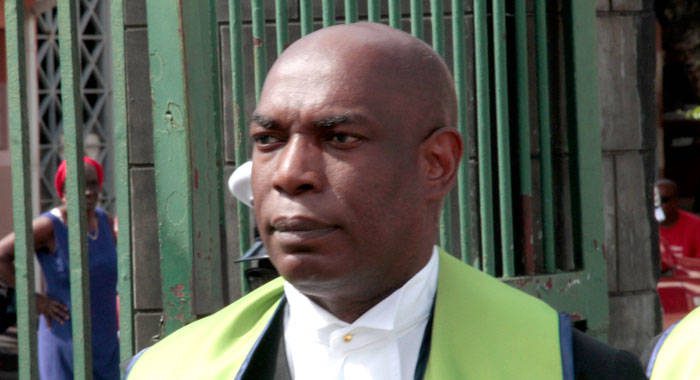A High Court judge has made it clear that when a court hands down a sentence, it is in calendar years rather than what is commonly regarded as prison years.
A prison year is commonly believed to be eight months long.
Justice Cottle gave the clarification last Tuesday while sentencing Travis Williams, 28, for manslaughter.
His lawyer, Kay Bacchus-Baptiste had pointed out to the court that her client had spent six years, two months, and 18 days on remand awaiting trial.
The defence counsel suggested that this was equivalent to eight or more years in prison, and that her client should be given credit for the period.
However, Justice Cottle disagreed.
“In my view, this is a misconception. The sentences of imprisonment are for calendar years,” the judge said, adding that any remission for good behaviour is an optional administrative act done by the prison authorities.
He said that the period spent on remand while awaiting trial must, therefore, be treated as calendar years and, consequently, it is therefore not possible for an accused person to receive any remission for good behaviour before a sentence is imposed.
Justice Cottle said that that approach has been endorsed by the Caribbean Court of Justice, with the lead decision given by the president of the court, Justice Adrian Saunders.
Justice Cottle said that if it is of any comfort, he was not sure he would have arrived at the same decision as the CCJ, but added that he must follow the ruling of the CCJ.
Justice Cottle said he could only, therefore, deduct from Williams’ 15-year sentence the six years, two months and eight days he spent on remand, bringing the sentence to eight years nine months and 19 days.
Williams was indicted on a murder charge in connection with the June 2011 killing of 72-year-old Stubbs businessman, Grafton Hutchinson, aka Casablanca, at the dead man’s Stubbs home.
Williams’ confession to his girlfriend and her brother two years later led to his arrest.







Duty council is ill informed and this is a disgrace for someone who consider herself to be an arm of the law .
KNOWLEDGE- VITAL IMPORTANCE TO CRITICISM
Guess you mean ‘…Defence Counsel.’
In the Judiciary, that is what it really is.
Knowledge, therefore, is of ‘…Vital importance to Criticism.’
MRS Baptiste l disagree with you on this one.If he was not sentence as yet.Then he was not a prisoner.So the years that he spent will be calender years.This juge is have a reputation of been (B….) So I understand your concern But this time he is right.
JUDGE COTTLE CORRECT – JUDICIAL CLARIFICATION
Justice Brian Cottle is absolutely correct about ‘…Misconception.’
Trial judges in other ‘OECS’ jurisdictions (particularly in Antigua and Barbuda) that have been erroneously guided by this ‘…Misconception,’ shall now learn from this ‘…Judicial Clarification.’
Time awaiting trial while on remand is ‘NEVER’ a sentence judicially imposed on any accused.
Thus, no consideration may be given by any trial Judge.
This is better left to the ‘…Prison Authorities’ who may give consideration of ‘…Remission of Sentence’ to an accused person, contingent upon his apparent reformed behavior, and who has shown evidence of rehabilitation back in society.
While rehabilitation has been among the primary concerns of the Judiciary, Judges shall still impose sentences that not only seek to bring about reformed behavior, but also to sustain ‘…consistent applicability’ as intended by the ‘…Sentencing Guidelines.’
That which is readily available to ‘…dissenting attorneys’ is the institution of appellate proceedings.
A much bigger concern to me is why it took eight years for the case to go to trial